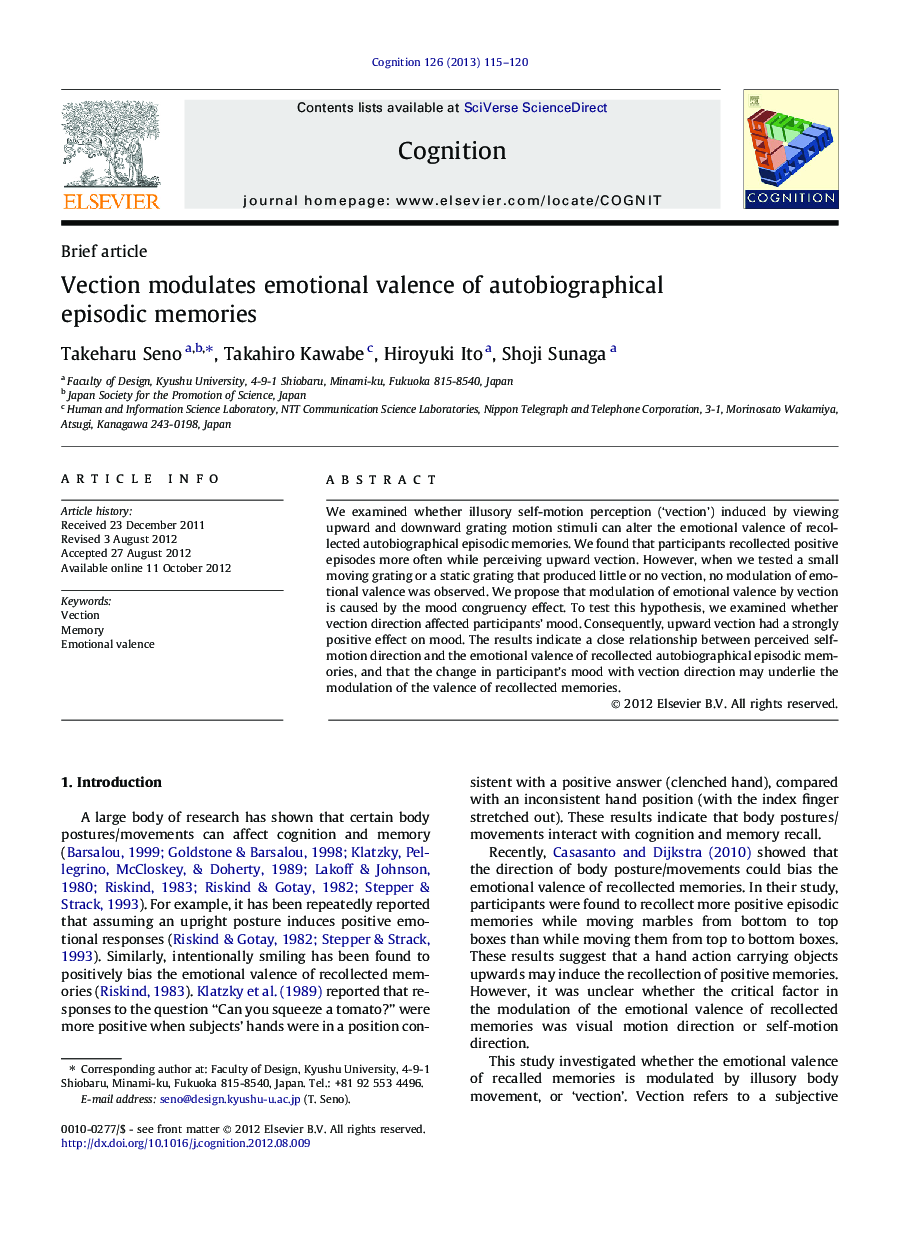| Article ID | Journal | Published Year | Pages | File Type |
|---|---|---|---|---|
| 926883 | Cognition | 2013 | 6 Pages |
We examined whether illusory self-motion perception (‘vection’) induced by viewing upward and downward grating motion stimuli can alter the emotional valence of recollected autobiographical episodic memories. We found that participants recollected positive episodes more often while perceiving upward vection. However, when we tested a small moving grating or a static grating that produced little or no vection, no modulation of emotional valence was observed. We propose that modulation of emotional valence by vection is caused by the mood congruency effect. To test this hypothesis, we examined whether vection direction affected participants’ mood. Consequently, upward vection had a strongly positive effect on mood. The results indicate a close relationship between perceived self-motion direction and the emotional valence of recollected autobiographical episodic memories, and that the change in participant’s mood with vection direction may underlie the modulation of the valence of recollected memories.
